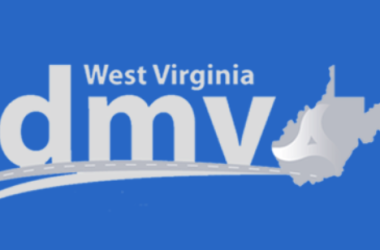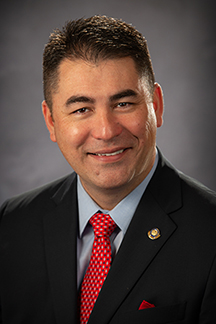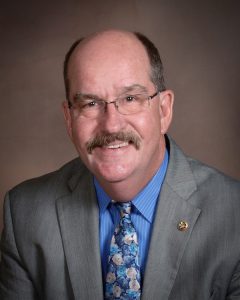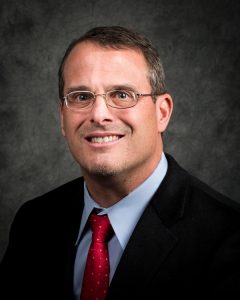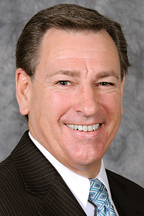SB 268 also sets minimum level of reimbursement to all medical providers at 110% of the Medicare rate
By Autumn Shelton, WV Press Association
CHARLESTON, W.Va. – In an effort to keep PEIA solvent, the Senate Committee on Health and Human Resources advanced a committee substitute of the West Virginia Employees Insurance Act on Thursday, which would set a minimal level of reimbursement paid to medical providers, and increase employer share and employee contribution to 80/20.
As discussed during the meeting, the committee substitute of SB 268 – the West Virginia Employees Insurance Act – changed language originally included in the introductory bill to provide a minimum level of reimbursement to all medical providers at 110% of the Medicare rate.
The committee substitute also amends the introductory bill by stating that instead of incrementally increasing the employer share and employee contribution to 80/20 over the next five years, this would take effect beginning in fiscal year 2023-2024.
Following the bill’s explanation, Senate Majority Leader and Committee Vice-Chair Tom Takubo, R- Kanawha, asked if this committee substitute would affect payment for those who need to visit a critical access hospital.
“A lot of smaller communities throughout West Virginia obviously depend on those, because without them they may be an hour, hour and a half away from any critical care whatsoever,” Takubo said. “They exist because they get a higher rate. This bill won’t affect payment for those critical access hospitals when PEIA recipients try to access that, right?”
Counsel responded that the rate for critical access hospitals would be set at the Medicare per diem per day rate, and that the bill’s language was written with the help of the West Virginia Hospital Association.
Counsel also stated that the bill does not affect pharmacy plans.
For those who obtain medical care outside of West Virginia, counsel stated, “We put an issue in the plan that the public insurance agency shall maintain a minimum 20% cost-share for in-state when applicable. So, that is traditional 80/20. And, at a minimum, a 30% cost-share for out-of-state benefits when applicable. So, that is trying to level set the 70/30 for out-of-state and 80/20 for in-state.”
For out-of-state networks, counsel explained that PEIA “shall use a nationally accredited network to provide care to its out-of-state members in terms of trying to bring down those costs by trying to get the benefit of a larger network.”
Senator Bill Hamilton, R-Upsher, then asked if the 110% Medicare rate for diagnosis also covers outpatient treatment.
Counsel responded that the bill excludes retirees, because the retiree rate “cannot be set,” but it does cover all providers for both inpatient and outpatient services as well as professional services.
Senator Eric Tarr, R-Putnam, added that the state’s current anticipated PEIA liability through 2028 nears $1 billion, with a $400 million a year “base builder.”
“It does that by a gradual change from an 80/20 plan to a 83/17 plan and goes on and on that way,” Tarr stated.
Going forward, Tarr said that “becomes unsustainable.”
He explained that the state would “eventually have to hit that 100% mark in order to . . . have a 12.5% reserve fund. Most insurance companies have a 20% reserve fund, he added, noting the growth of that expense needs to be stabilized.
“We know that we have that coming at us if we do nothing,” Tarr continued. “So, something has to happen in order for us to be able to continue to provide health benefits to our state employees.”
Jason Haught, acting director and CFO of PEIA, testified that he believes setting PEIA reimbursement levels and changing the timeline of 80/20 insurance is “a different way of handling this.” However, it can be “administered.”
“I would like to look at the committee substitute a little closer, but at this point, I would not have any significant issues where I would say, ‘I think we need to stop this,’” Haught said.
Takubo said that the bill’s goal is to prevent a situation where providers no longer accept PEIA due to a low reimbursement rate. He said a similar issue occurred in the late ‘80s, early ‘90s.
“It got caught back up, but it’s just wound its way back into a similar situation,” Takubo noted.
Haught responded that the plan had been doing well, except for inpatient rates.
“The inpatient rate did not, for whatever reason, get renegotiated timely enough to prevent it from becoming the issue that we are all here talking about,” Haught said. “We are at Medicare on all the other reimbursement levels. We worked very well with our providers except for the one category.”
“But you can’t reimburse what you don’t have,” Takubo interjected.
“Yes. That obviously is an issue,” Haught responded.
Committee Chairman Michael Maroney, R-Marshall, asked if PEIA is allowed to negotiate inpatient rates, to which Haught responded he believes they may negotiate rates with in-state providers.
“The one that we are talking about right now was done in 2002 with the West Virginia Hospital Association and PEIA and the Department of Health and Human Resources Bureau of Medical Services,” Haught said, adding that they came up with the Medicaid swap reimbursement that provided money for the hospitals.
“It just ran stale,” Haught said, noting that the last time PEIA premiums were raised for the in-state pool was in either 2018 or 2019, but he would need to check to be sure.
Senator Robert Plymale, D-Wayne, added that “the bottom line is that the 80/20 rule was put in place after a negotiation in a bill, and it’s supposed to stay in place.”
He said back in the ‘90s the state was picking up a larger amount with an employer share to employee contribution of 96/4.
“We were not paying our bills,” Plymale said. “It’s not that our reimbursement was not where it needed to be. It may not have been, but it’s the fact that we were not paying our bills, and the providers were denying access to patients because they were not getting paid.”
“We’ve got such a severe problem. We’ve gotta come up with solutions and I do believe that it needs to be in code so we can adhere to that as an ongoing basis,” Plymale concluded.
The bill is now headed before the Senate Finance Committee for further consideration.



